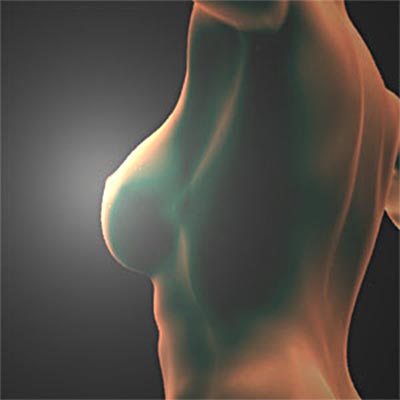Breast Cancer Early Detection

The statistics for breast cancer speak volumes. There is a 1 in 8 chance that any woman can contract breast cancer at some point in her lifetime. Nearly 182,000 women are diagnosed with breast cancer each year in the United States alone. The casualty rate is about 25%. It has been recommended by the American Cancer Society for all women above 20 years of age to undergo monthly Breast Self Exam (BSE).
Many a woman is bewildered and confused by the plethora of information that is available on this form of cancer. Our section on early detection of breast cancer seeks to create awareness of this form of the Big C that can be easily detected in the early stages. If found at an early stage, most cases of breast cancer can be cured. If breast cancer is detected early enough, even before symptoms begin to appear, it is more likely to respond to treatment. Early detection of Breast Cancer can make a big difference to thousands of women.
How to detect Breast Cancer
Self breast examinations and mammogram go a long way in finding breast lumps that may be cancerous. A Mammogram is an excellent early detection method that is recommended for all women above 40 years of age by the National Cancer Institute and the U.S. Department of Health and Human Services. It is likely to indicate a tumor a couple of years prior to a breast examination conducted clinically.
About 10% of the breast cancer cases have a hereditary origin. Genetic mutation in the BRCA1 and BRCA2 genes is the most common cause for hereditary breast cancer. One way to detect cancer at early stage if you have a family history of breast cancer is to take genetic testing for BRCA1 and BRCA2 mutations. But this must undertaken under careful supervision of a genetic counselor.
For women with dense breast tissue, a breast ultrasound might be used. This ultrasound imaging provides an evaluation of blood flow within the breast tissue. This helps diagnose any abnormalities such as tumors, cysts etc. Ultrasound helps in early breast cancer detection especially in cases where the woman has dense breasts, silicone breast implants or is pregnant. Ultrasound-guided biopsy can be easily done in case of suspicious breast abnormalities.
Additionally, Breast MRI is used in cases of high risk detection of Breast Cancer. Breast MRI is used to detect breast cancer if you have a suspected rupture of a breast implant or are at high risk of breast cancer. If a suspicious mass is felt on examination but not detected on a mammogram or ultrasound, breast MRI is done.
Top of the Page: Breast Cancer Early Detection
Tags:#breast cancer #breast cancer #Living beyond breast cancer #breast cancer awareness

Cancer Staging and Grading
Mammogram - Breast Xray
Breast Ultrasound
Breast MRI
Breast Augmentation
More on Breast cancer

Stress and Breast Cancer
Breast Density and Breast Cancer Risk
Lower your Breast Cancer Risk
Breast Cancer Myths
Mastitis
Breast Cancer Awareness
Preventing Breast Cancer
Breast Self Exam
Breast Cancer Chemotherapy Treatment
Palpable Breast Mass
Breast Cyst
Breast Cancer Symptoms
Breast Calcification
Breast Cancer Treatment
Mastectomy
Top of the Page: Breast Cancer Early Detection
Popularity Index: 100,949

